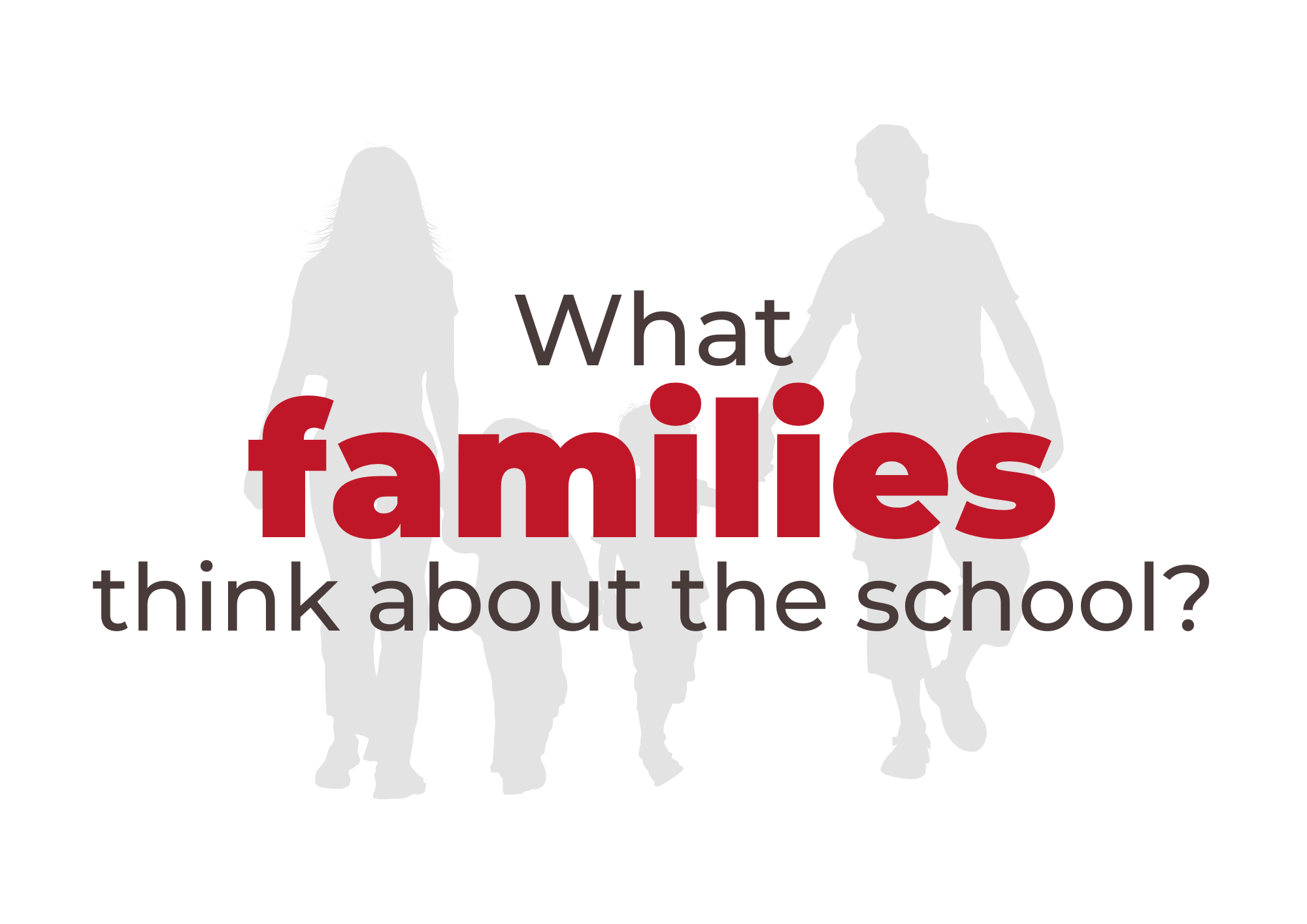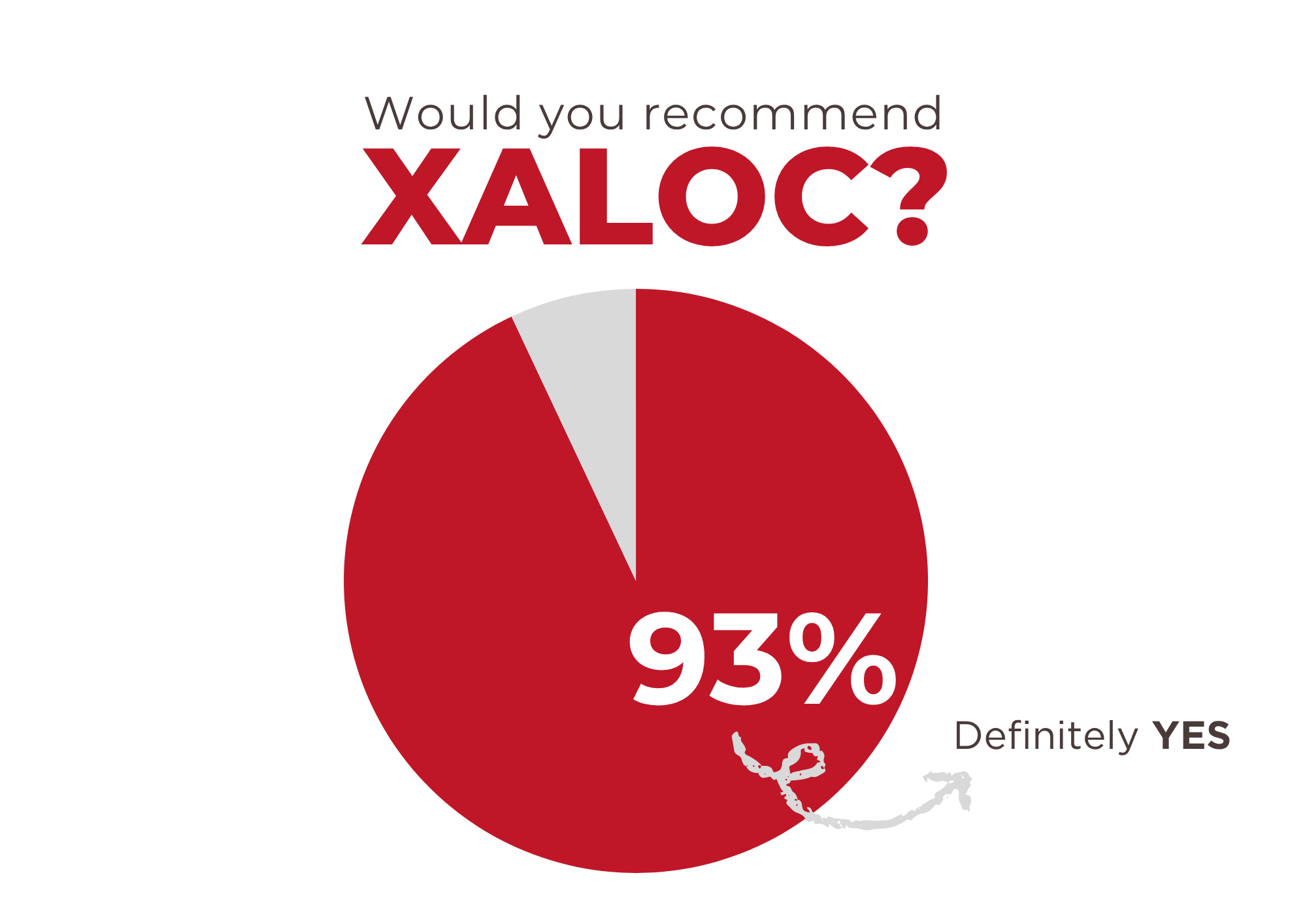
Feedback Regarding Xaloc School
At Xaloc, it is essential to understand what families value, need, and expect from the school. With this in mind, at the end of the 2024/2025 school year, a survey was sent to families from all educational stages. Families from Primary, Secondary, Baccalaureate, and Intermediate Vocational Training took part, sharing their opinions on various aspects of the school, such as education, communication, and the services we provide.
The feedback collected gives us a clear and representative view of how families perceive our educational project and helps us identify strengths and areas for improvement so that we can continue moving forward together.
Families have responded to numerous questions regarding the educational project and the operation of the school, using a scale ranging from 1 to 4, where 1 represents the lowest level of satisfaction and 4 the highest.
The Family, the core of our educational project
Treatment of Families and Students by the School
The quality of care extended to families and students by
Xaloc and its administrative body has garnered favourable appraisal, with 86% of respondents rating it as either good or excellent.
The teaching staff, as well as the
personal tutors allocated to students, received a satisfactory rating from 91% of participants. Likewise, the administrative staff earned the same rating from 87% of respondents.
The
foundation of our educational approach lies in the continual interaction between the institution and families. Xaloc's vision extends beyond the student, encompassing their family dynamics and requirements.
Communication between the School and Families
A noteworthy 89% of respondents expressed satisfaction with the professionalism of the communication department, with 95% of families indicating that the amount of information disseminated by the school is adequate.
Xaloc Family School
Training courses, directed
towards both mothers and fathers, are collaboratively organized by the
AFA of Pineda, Xaloc, and Avantis. These sessions are designed to support parents in the education of their children while also fostering a seamless relationship between families and the school. An overwhelming majority, accounting for 89% of parents, express their endorsement of this collective initiative.
In the schedule of Xaloc School, three parent meetings are scheduled annually. Each meeting comprises a general group session per course and a session with the tutor of each class. Subsequently, there is an opportunity for parents who choose to remain for an informal dinner in the school dining hall.
Moreover, for those who are interested, the AFA provides family counselling courses and Christian formation activities.
Parents' Concerns
Concurrently, 78% of families find Xaloc's policy on mobile device usage appropriate, while 15% opted not to provide an opinion, and 5% consider it excessively permissive. Consequently, in response to these findings, the school has initiated the ESM (Phone-Free Space) campaign among families, staff, and students.
In relation to school discipline, a significant majority of families, constituting 89%, express satisfaction with the current level. Conversely, when addressing the issue of homework volume, 82% of respondents perceive it to be appropriate.
Foundations of Xaloc
The foundational principles of Xaloc are rooted in academic education and human and Christian formation, as affirmed by our families. Established in 1964 by fathers and mothers deeply committed to the holistic development of students, the school was conceived with a vision to nurture individuals across three dimensions: professional, social, and personal. This task remains present in the spirit of the school.
We have requested feedback from families regarding their satisfaction levels in both regards.
Academic Education
The overall academic standard of the school, quantified at 3.56 points on a scale of 1 to 4, signifies a commendable level of education. This translates to a favourable perception among 96% of respondents, who regard the academic quality as either good or excellent.
Additionally, there is a notable satisfaction rate of 91% concerning the preparation and training of the teaching staff. This indicates a positive reception of Xaloc's educational approach by families.
Furthermore, recognizing parents' growing concerns about their children's professional prospects in an evolving world, we sought feedback on two pivotal aspects: the integration of new technologies and English proficiency.
Out of the 410 surveys, 331 families (86%) regard
the utilization of new technologies at the institution as good or excellent. At Xaloc, we endeavour to ensure that our students conclude their various educational stages with a commendable level of technological proficiency, all the while harnessing technology to enrich their learning experience across diverse fields of knowledge.
Regarding
English proficiency, 82% of surveyed families rated Xaloc's provision as either good or excellent. English serves as the primary foreign language at Xaloc, bolstered by comprehensive preparation for University of Cambridge's official exams. Collaborating with native instructors, students engage in regular conversations outside the classroom and in small groups in class to enhance their oral proficiency.
Human and Christian Formation
A significant majority, 94%, of Xaloc families place high value on the religious education provided to their children. The school's commitment to this aspect of education is evident through its
Chaplaincy service, led by priests from the Prelature of Opus Dei. This service is available not only to students but also to parents, teachers, administrative and service staff, as well as alumni who seek spiritual guidance and support.
A distinguishing feature of Xaloc is the personalized approach to value transmission, facilitated by the
personal tutor assigned to each student. This individual plays a pivotal role in the personal and professional development of students, providing guidance and support to nurture their personalities and facilitate growth and character formation. To ensure this tailored support, each personal tutor allocates dedicated time in their schedule for bi-weekly interviews with each student. The effectiveness of this personalized approach is evident, with an impressive 88% of families rating the personalized follow-up as excellent or very good.
Solidarity Activities Promoted by Xaloc
Since its inception, Xaloc has been a school committed to improving its environment. Established in the sixties within one of Barcelona's industrial belts, the school's primary mission was to provide education, particularly to children from working-class families.
Today, Xaloc continues to uphold the spirit of solidarity embedded in its origins by actively engaging in numerous solidarity initiatives with associations in L'Hospitalet de Llobregat. These efforts are aimed at instilling social and civic sensitivity in its students.
A significant majority of respondents, 71%, view the diversity of solidarity
activities positively, rating them as good or excellent. Additionally, 19% of respondents express a desire for more activities to be organized. In response, the school remains committed to promoting further solidarity initiatives that allow students to actively participate and contribute to their community.
School Services
Xaloc School Facilities
The school boasts separate pavilions for each educational stage, extensive recreational areas, and numerous sports facilities.
Xaloc boasts an array of facilities aimed at enriching the student experience. These include numerous sports, recreational, and green areas, along with an auditorium, library, dedicated kitchen and dining room, art and music classrooms, chemistry and biology laboratories, computer labs, and an oratory where daily Mass is celebrated.
Additionally, the
Vocational Training pavilion is fully equipped with essential spaces tailored to the teaching needs of the various cycles and courses offered by the school. These include a mechanical workshop, electrical installations workshop, heating and cooling installations workshop, welding booths, automation workshop, electronics laboratory, and more.
Furthermore, recent expansions have seen the enhancement of
sports facilities, with the addition of an 11-a-side football field, a 7-a-side football field, and the construction of 10 paddle tennis courts.
The quality and accessibility of these facilities are highly regarded by the Xaloc community, with an impressive 96% of families rating them as good or excellent. Moreover, a similar percentage (95%) acknowledges the excellent or good condition and maintenance of these amenities.
Xaloc School Dining Hall
During lunchtime, students engage with their peers in a relaxed atmosphere—a time carefully crafted to foster formative interactions.
The school owns both the
dining room and kitchen facilities, offering families the convenience of accessing the menu through the school's website. Additionally, for students with specific dietary requirements related to digestive, endocrine, or metabolic conditions, our kitchen staff prepares personalized menus to accommodate their needs.
Families have been surveyed regarding the quality, variety, and quantity of the food served in the school cafeteria. Overall, approximately 50-60% of families rate these aspects as good or satisfactory. A smaller percentage, less than 20%, view them as areas for potential improvement. To address these concerns, the school administration maintains regular communication with the kitchen team, striving to enhance the quality of service provided.
Psychopedagogical Attention
The
Guidance Department of Xaloc is an internal service providing educational, psychopedagogical, and academic guidance, catering to all students and their families across all stages and educational programs offered at the school.
The primary tasks it undertakes involve the detection, assessment, guidance, provision of information, and addressing of the educational requirements that our students may have, encompassing both academic and emotional domains. This service has been appraised as either satisfactory or outstanding by 43% of the families.
Would you recommend Xaloc to other families?

The entire educational community of the school is pleased with the large number of families who would recommend the school: 93% of respondents answered “definitely yes.”